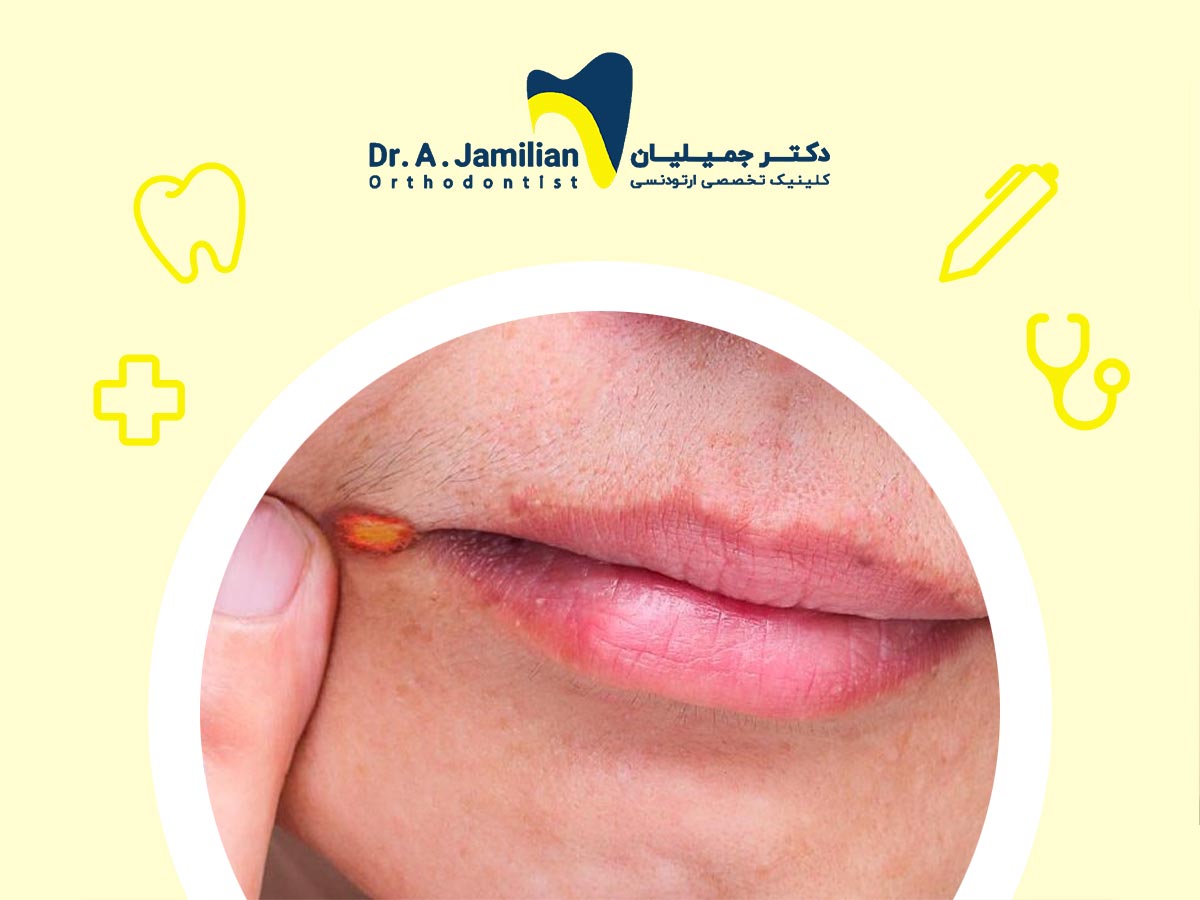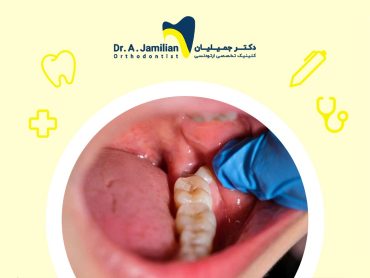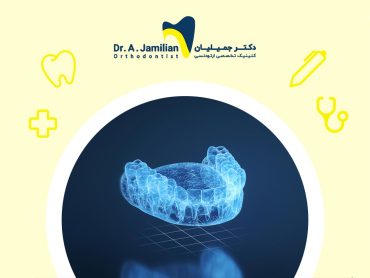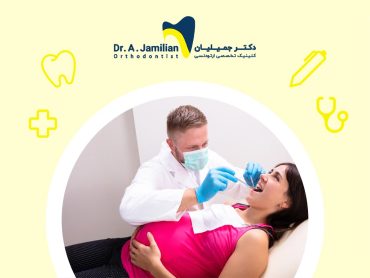Angular cheilitis or angular stomatitis is a skin inflammatory disorder affecting corners of our mouth. The disorder would be developed at or both corners of the mouth and it can occur in any age group. Angular cheilitis would be caused by different factors such as dentistry activities, orthodontics or dermal diseases. In general, lips are sensitive and any improper usage or accidental touch of dentistry devices with the lips’ corners or any force or friction caused by such instruments would irritate our skin and as a result bring about ulcers or cracks at the corners of our lips.
Cracks around lips which are known as angular cheilitis or perleche could be accompanied with certain dermal diseases such as eczema, psoriasis, candidiasis, and contact dermatitis. Normally angular cheilitis is treated automatically after some days, however, sometimes people would suffer from this disorder in a chronic way. In some cases, the symptoms of this disease would be painful and they would vary from mild redness to open blisters with bleeding.
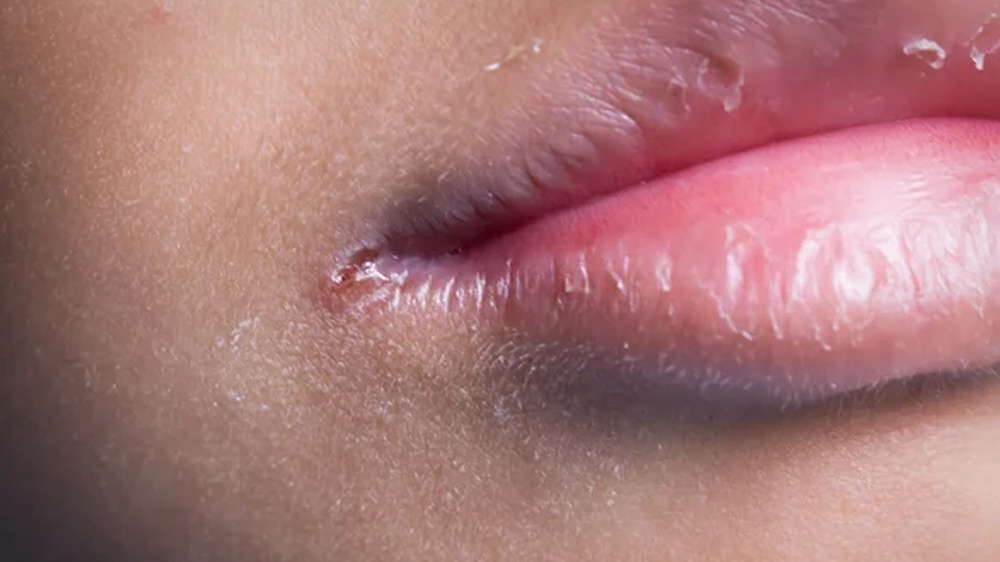
Symptoms of Angular Cheilitis
Widespread studies on people who are suffering from this disease have shown that lip corner cracks or angular cheilitis usually are accompanied with the following symptoms:
- Erythema and inflammation
- Cracked skin
- Open blisters and bleeding
- Skin roughness, flaking, itching,
- Painful lips or mouth
- Dried and cracked lips
- Problem when eating food
Causes of Angular Cheilitis
One of the most common causes of angular cheilitis is yeast infection in the patient’s mouth. Saliva could be the source of this infection for lips. Lips’ corners are a proper place for accumulation of saliva and consequently infection and cracking. Moreover, deficiency of group B vitamins and vitamin A, orthodontic treatment and other dentistry treatments, underlying diseases including immune deficiency and diabetes, dermal disease and bad habits like finger sucking and dehydration are among the most important causes of angular cheilitis.
It is important to note that angular cheilitis would be caused by so many different factors, so reaching a proper diagnosis and treatment consultation with a healthcare professional such as a dermatologist or a general practitioner is necessary. They can analyze the current status, identify underlying dermal diseases or factors which would bring about cracks and finally proper purposeful treatment options such as topical lotions, ointments or certain diets in order to deal with the certain disease and its recovery.
Angular Cheilitis Due to Deficiency of Group A and B Vitamins
Group B vitamins, particularly B2, B3, B6 and B9 are very effective in growth and proliferation of dermal cells. The skin of lips is very sensitive and consumption of all nutrients and vitamins is necessary for maintaining its health.
Deficiency of vitamin B2 or riboflavin in the body would lead to angular cheilitis. This water-soluble vitamin is necessary for the growth and proliferation of cells of skin, nail, hair and joints. This vitamin can be supplied through daily consumption of green vegetables, eggs, nuts, cereals and meat.
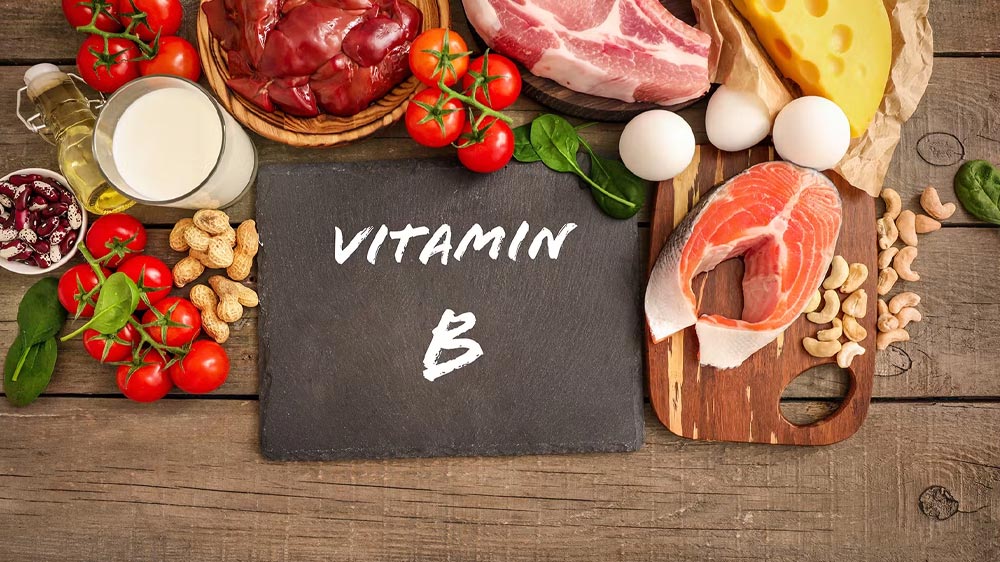
Vitamin B3 or Niacin in the daily diet is necessary for maintaining the health of skin and avoiding development of angular cheilitis, inflammation and tongue redness and development of ulcers beneath the tongue. Foods full of this vitamin are tuna fish, red meat, potato, green vegetables, cereals, fruits like peaches, cherry, milk and liver.
Vitamin B6 or Pyridoxine is another member of group B vitamins whose deficiency would result in dermal diseases, dermatitis and angular cheilitis. This vitamin can be found abundantly in foodstuffs like meat, cereals, beans and yolk.
Vitamin B9 and Folic acid play a key role in production of red blood cells and repair of DNA. The deficiency of this vitamin would lead to certain problems like premature fatigue, gray hair, oral ulcers, glossitis or swollen tongue and disturbed growth. The foods rich in this vitamin are green vegetables, citrus, peas, beans, liver, enriched cereals and wheat bran.
Excessive consumption or deficiency of vitamin A in our body would result in the dried skin and angular cheilitis. Vitamin A is a fat-soluble one whose extra amounts are stored in our body. Its toxicity in the body would be lethal. Never try to use supplements of this vitamin without consultation with a doctor. Vitamin A can be found in red meat, fish, white meat, diaries, fruits and vegetables like spinach.

Angular Cheilitis Caused by Orthodontic or other dentistry Treatments
Dentistry instruments and devices would potentially contribute to creation of cracks in the corners of the lips, if they come in contact with the delicate skin of the lips. Usage of orthodontic instruments and placement of brackets on teeth will increase the saliva secretion, which in turn paves the way for development of angular cheilitis and infection across kips’ corners. It is possible that lips get dried and corners become ready for cracks during certain dentistry treatments such as dental long surgeries or orthodontic examinations in which patients have to keep their mouth open for a roughly long time. A mixture of dryness and long-time contraction would lead to development of angular cheilitis. In rare cases, allergic reactions to the dental materials such as latex gloves or dental restorative materials would result in inflammation or stimulation of lips including their corners. Such allergic reactions potentially are able to create cracks and discomfort in this area.
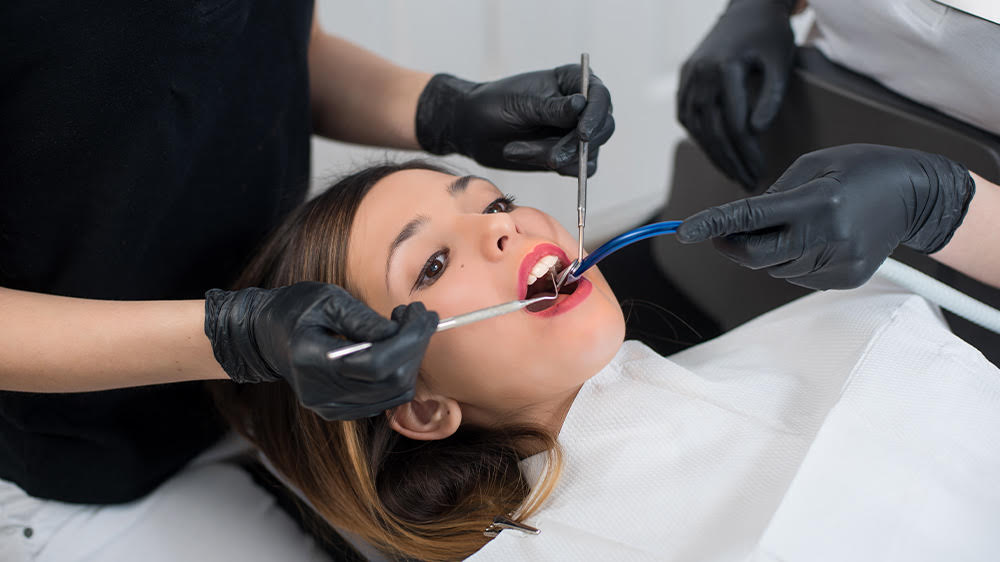
Role of the Underlying Diseases in Development of Angular Cheilitis
In some cases, the underlying diseases would lead to development of angular cheilitis. Here you can find some explanations about the relationship between these factors and angular cheilitis:
1. Immune deficiency: the condition of immune defiance, whether acquired or congenital, would weaken the body’s immune system. This makes it difficult for our body to fight against infections. Which in turn, will increase the potential of occurrence of opportunistic infections. This varies from things such as fungus or bacterial infections around the corners of lips. These in the later stages n would lead to angular cheilitis.
2. Auto-immune disorders: auto-immune disorders would impact skin and mucous membranes and bring about dryness and inflammation. The disorders would enhance the potential of creation of angular cheilitis.
3. Diabetes: People suffering from diabetes are very susceptible to some dental and oral diseases and dermal problems including angular cheilitis.
4. Inflammatory bowel disease (IBD): Crohn’s disease and ulcerative colitis include the chronic inflammation of the digestive system. In some cases, it would extend even to the mouth and bring about mouth dryness as well as angular cheilitis.
Bad Habits and Their Impact of Angular Cheilitis
Angular cheilitis would be the result of repeated contacts and moisture caused by sucking a finger or chewing nails.
Any endeavor to control and break bad habits of chewing nails or sucking fingers, to meet oral and dental sanitary standards, to keep mouth corners and using gel or creams all can help to automatic recovery of angular cheilitis and to avoid further irritations.
Dehydration and Angular Cheilitis
Angular cheilitis would be due to dehydration. Dehydration occurs when our body has no enough water reservoirs for right and proper performance. The hydration would be due to insufficient consumption of liquids, excessive sweating or some medical conditions. When dehydration occurs, it would affect the body’s moisture level including across skin and lips, which in turn would bring about dried lips, cracked lips and angular cheilitis. Adequate hydration to the body is vital for maintaining a proper moisture level in lips and recovery of angular cheilitis.
Treatment of Angular Cheilitis
The aim of treatment of angular cheilitis is removing infection from lips’ corners and keeping them dry to avoid recurrence of infection. The most important treatment for this disease is topical disinfecting of lip corners and keeping angular cheilitis clean. Depending on the cause of angular cheilitis, its treatment will vary.
- In cases where angular cheilitis occurs due to deficiency of vitamins and minerals in your body, after consultation with a doctor you have to use a food supplement.
- In cases where angular cheilitis occurs due to yeast infection, topical antifungal medicines are prescribed.
- In cases where angular cheilitis occurs due to bacterial elements, your doctor has to prescribe topical antibacterial antibiotics for your treatment.
- In cases where angular cheilitis occurs due to sagging skin, your doctor would use the treatment of filler insertion in order to remove wrinkles around the lips corners.
Using proper techniques and care during the surgery or operation by your orthodontist and dentist is necessary to minimize the risk of angular cheilitis caused by dentistry instruments. Lubricating lips with water-based gel or lip balm before start of treatment would be useful for reducing friction and dryness. Moreover, the occurrence of any discomfort or sensitivity during the operation could force the dentist to take pre-emptive measures to make sure of the safety and comfort of their patient. Usage of topical ointment including steroid combinations is useful for treating ulcers.
Also, there are some home-made treatments for the angular cheilitis, including:
- Sucking hard candies to avoid mouth dryness
- Using lip balm to avoid lip dryness
- Using coconut oil and/or Vaseline around lips
- Placing cucumber on the inflammatory ulcers
- Using honey with strong antibacterial properties
- Placing cool aloe vera gel on the angular cheilitis
- Mixing tea tree oil (TTO) and coconut oil and rubbing it over cracks around the mouth
FAQ Angular Cheilitis Causes and Treatments
If the main cause of angular cheilitis is fungal infections, failing to treat the infection on-time would bring about a condition in which the infection extends to the peripheral skin. Thus, it not only makes the treatment difficult, but also distorts the patient’s appearance, making their talking and eating difficult.
The best way for treating angular cheilitis is visiting a specialized physician. After diagnosing the main cause of the disease and using disinfectant materials, prescription of steroid ointments and antibiotics can solve the problem faster.
Keeping the ulcers clean, using strong hydrating creams and lubricating cracks around the lips using coconut oil and/or Vaseline are some home-made treatments for this disorder.
The main causes are a deficiency of group B vitamins, dehydration, and underlying disease. However, among all of these one stands out the most ulcers. Ulcers caused by dentistry, orthodontic instruments and devices are among the most important causes of angular cheilitis.
